
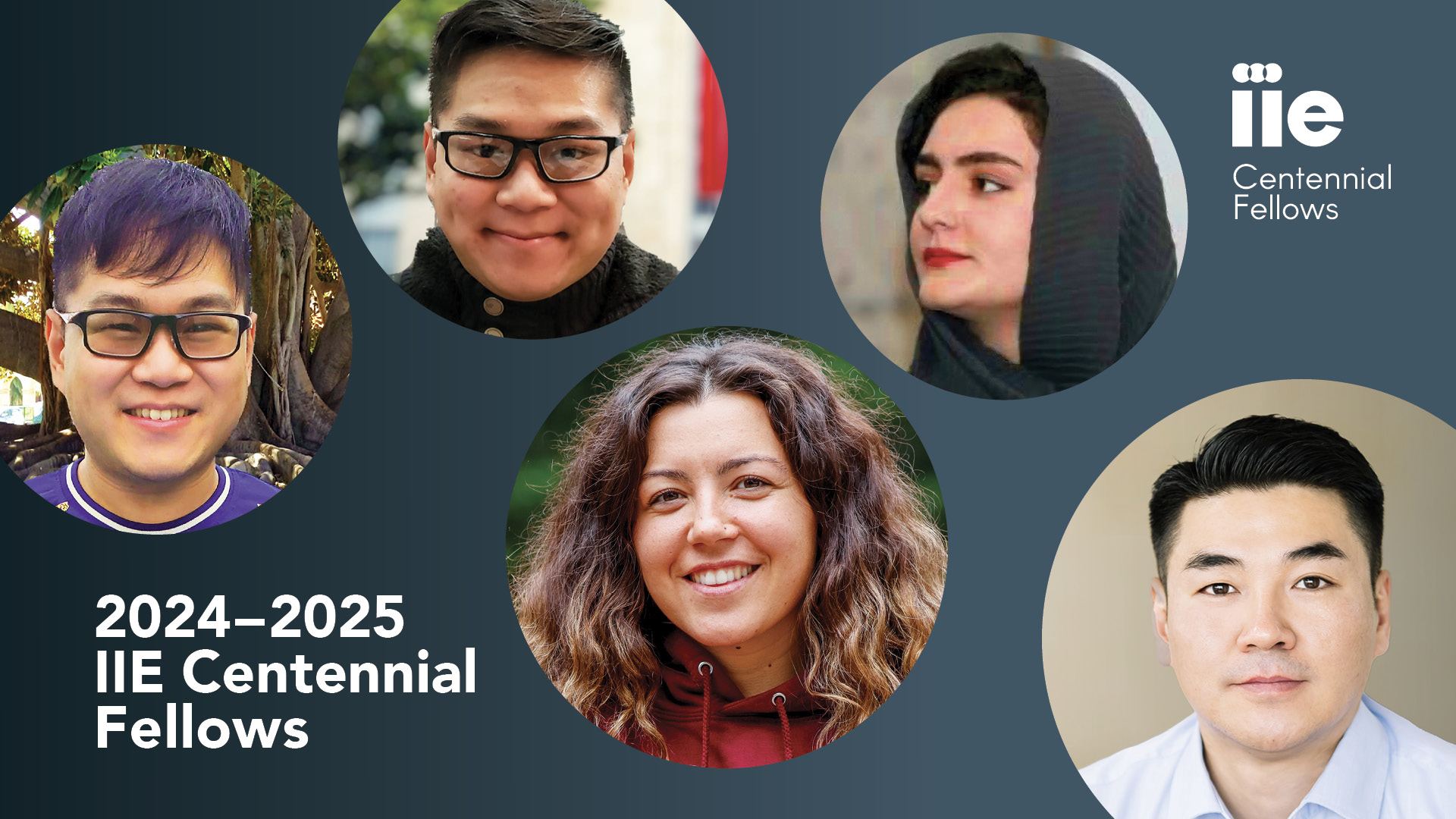
Current Fellows
2024 – 2025 IIE Centennial Fellows
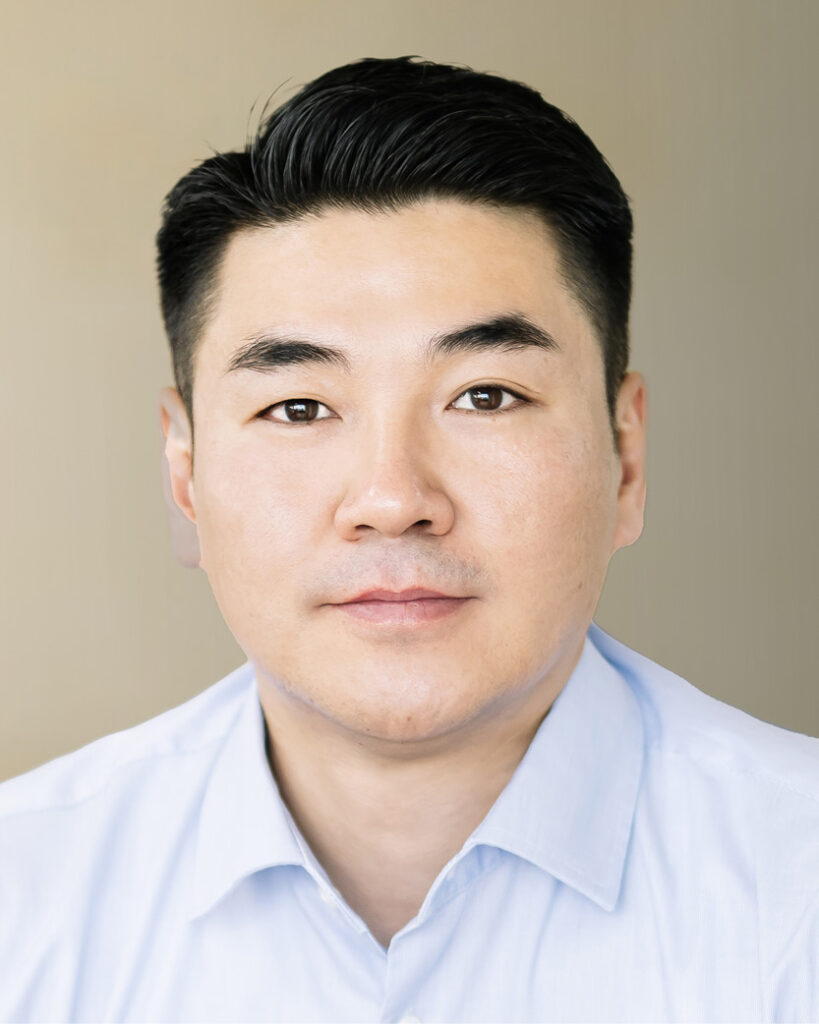
Gantushig Gankhuyag
IIE Centennial Fellow
The Rural School Leadership Program
Fulbright Foreign Student, 2017-2018
Gantushig “Tushig” Gankhuyag, is the co-founder and CEO of Teach for Mongolia (“TFM”), an organization dedicated to addressing educational inequality and ensuring that every child in Mongolia can create the future they envision. Tushig is an avid supporter of volunteerism, education, and youth development. He firmly believes that education is the “silver bullet” for tackling many of today’s societal challenges. Before founding Teach for Mongolia, Tushig spent over a decade in public and private sectors, focusing on development finance, public strategy, and policy. He worked with the World Bank, ADB, and UNDP to advance rural development, sustainable finance, and governance. During the COVID-19 pandemic, he helped the Prime Minister’s Office draft the New Recovery Policy to stabilize the economy and improve infrastructure. Tushig earned a Master of Public Administration (MPA) from Cornell University as a Fulbrighter and a Bachelor of Science in Finance from Indiana University South Bend.
The Rural School Leadership Program (RSLP) empowers school principals in underserved areas of Mongolia with skills in management, strategic planning, and community engagement to create inclusive, well-resourced, and supportive educational environments.
The objectives of the project are to:
- Improve teacher retention.
- Enhance student outcomes.
- Bridge rural-urban educational disparities.
Tushig is most looking forward to seeing rural school leaders transform into confident, strategic decision-makers who create inclusive and supportive learning environments for both teachers and students. By addressing systemic challenges like teacher retention and resource scarcity, the project will directly impact the quality of education in Mongolia’s underserved areas. Additionally, he is excited about the ripple effect this program can have—fostering stronger communities, inspiring student success, and serving as a replicable model for education reform globally.
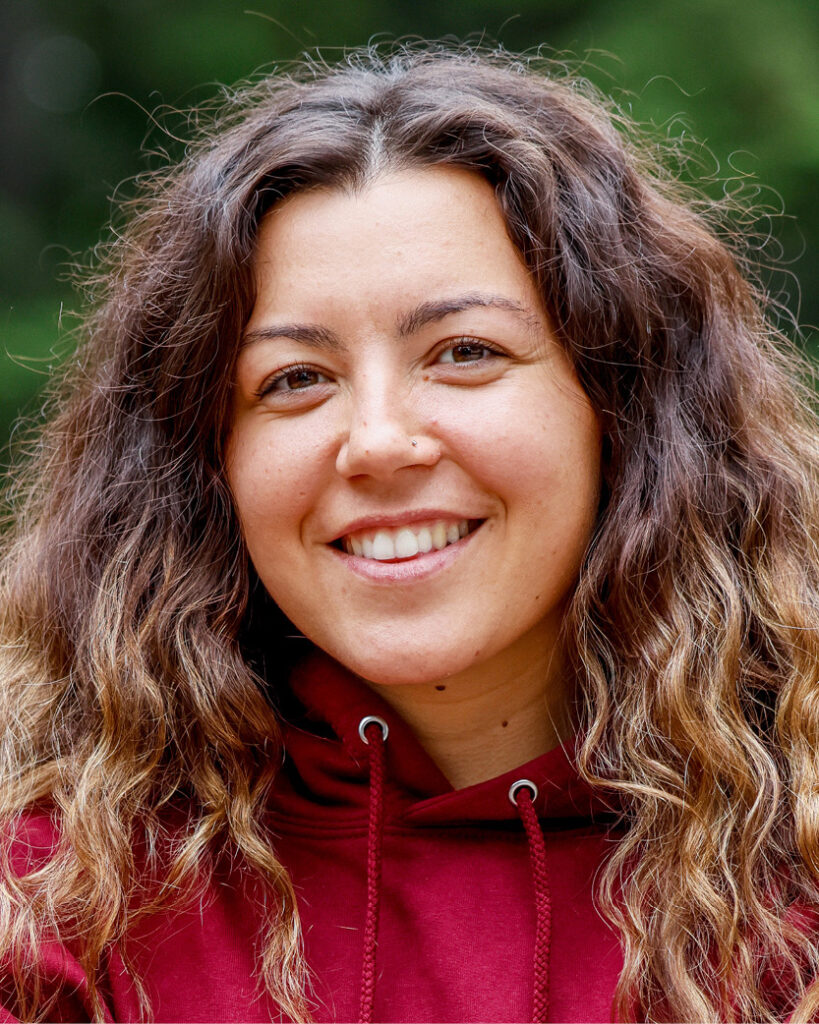
Hristina Katsipidou
IIE Centennial Fellow
Deaf Youth Innovate for Bulgarian Sign Language
Fulbright Visiting Scholar, 2022-2023
Hristina Katsipidou is a dynamic member of Deaf.BG, and is known for her charisma, optimism, and passion for community engagement. As an accomplished athlete, she earned a bronze medal in mountain biking at the Deaflympics 2022 in Brazil. Hristina, a native signer of Bulgarian Sign Language, is dedicated to empowering Deaf women and youth through sports and lifelong learning. She is fluent in Bulgarian, Greek, American, and International Sign Languages, as well as in spoken Bulgarian and English. Hristina holds a bachelor’s degree in physical education from Sofia University and is completing a Master’s in Sign Language Education. Co-founder of the Active Deaf Youth Organization in Bulgaria, she actively participates in projects and training sessions to develop future Deaf leaders and professionals.
The project “Deaf Youth Innovate for Bulgarian Sign Language” aims to empower 35 young Deaf individuals in Bulgaria through intensive workshops focusing on leadership, innovation, and developing Bulgarian Sign Language (BGSL). By fostering collaboration, sharing knowledge, and promoting self-advocacy, the initiative seeks to build a new generation of Deaf leaders and specialists who will contribute to the sustainable development and implementation of the Bulgarian Sign Language Act.
The objectives of the project are to:
- Empower Deaf youth.
- Advance the development of Bulgarian Sign Language (BGSL).
Hristina is looking forward to witnessing the transformation of young Deaf participants into confident leaders and advocates for Bulgarian Sign Language. It will be incredibly rewarding to see them collaborate, innovate, and create projects that reflect their vision for a more inclusive society. She is especially excited about the potential ripple effect of the workshops — inspiring a new generation of Deaf professionals who will continue to push for the effective implementation of the Bulgarian Sign Language Act and drive positive change in our Bulgarian Deaf community and will be able to act as a showcase for other Deaf communities around the world.
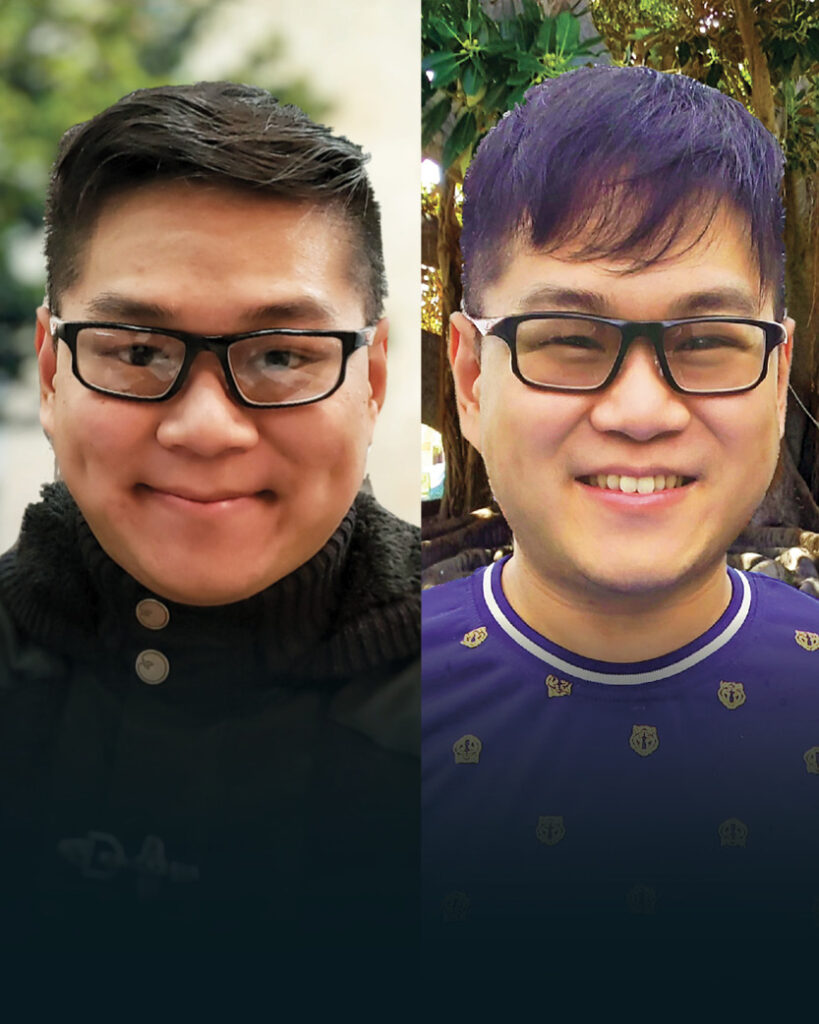
Hai and Phillip Pham
IIE Rodman C. Rockefeller Centennial Fellow
Sparky: Empowering Indigenous Students in STEM through Aboriginal Storytelling and Robotics
Fulbright English Teaching Assistants, 2022-2023
A drug discovery scientist by day, a STEM educator in the evening, and a social entrepreneur at night, Hai Pham aspires to teach STEM with a purpose — transmuting a student’s greatest strengths into practical, high-impact projects and career pathways. At Baylor College of Medicine, Hai was a cultural ambassador where he developed and implemented patient education interventions for medically underserved communities and co-developed a cancer outreach mobile application. His work in the EdTech startup space has helped students gain a better knowledge base of how molecular folding is essential in today’s pharmaceutical landscape. At Harvard and University of Michigan, Hai developed and assessed machine learning models in drug discovery and protein designs. He is a member of Phi Beta Kappa.
Phillip Pham is a social innovator and computational scientist, with a scorching passion to empower students through cutting-edge tech to become future leaders in engineering and medicine. His EdTech startup on developing virtual reality lessons was pitched to Chelsea Clinton and funded by the Clinton Foundation. He also pioneered CuriosityLabs@TAIWAN, teaching coding and United Nations Sustainable Development Goals to rural primary schools of Taiwan. More recently with his research at Stanford, he and his colleagues spearheaded the first RNA category in over 30 years at CASP15, an important competition with potential for advancing biomedical outcomes. His diverse research work has led to multiple publications in scientific journals, including Nature and Proteins.
Sparky aims to address the underrepresentation of indigenous people in STEM fields by providing a culturally responsive learning experience that integrates engineering and robotics with aboriginal storytelling.
The objectives of this project are to:
- Design culturally-aware lessons that teach students how to think like scientist-engineers.
- Build robotics to solve real problems and showcase students’ indigenous roots.
- Open new education-to-career pathways for indigenous and historically underserved students.
Hai and Phillip are looking forward to creating networking opportunities for our students. Most excitingly, they are eager to share their students’ joy and to celebrate the culminating work at the end-of-program Hackathon. Even before that stage, they look forward to working with students as they tackle problems, get stumped together, and debug during the iterative process of prototyping, modifying, and testing designs. Outside the classroom, they look forward to collaborating with Taiwanese partners and engaging important discussions in indigenous curriculum and policy.
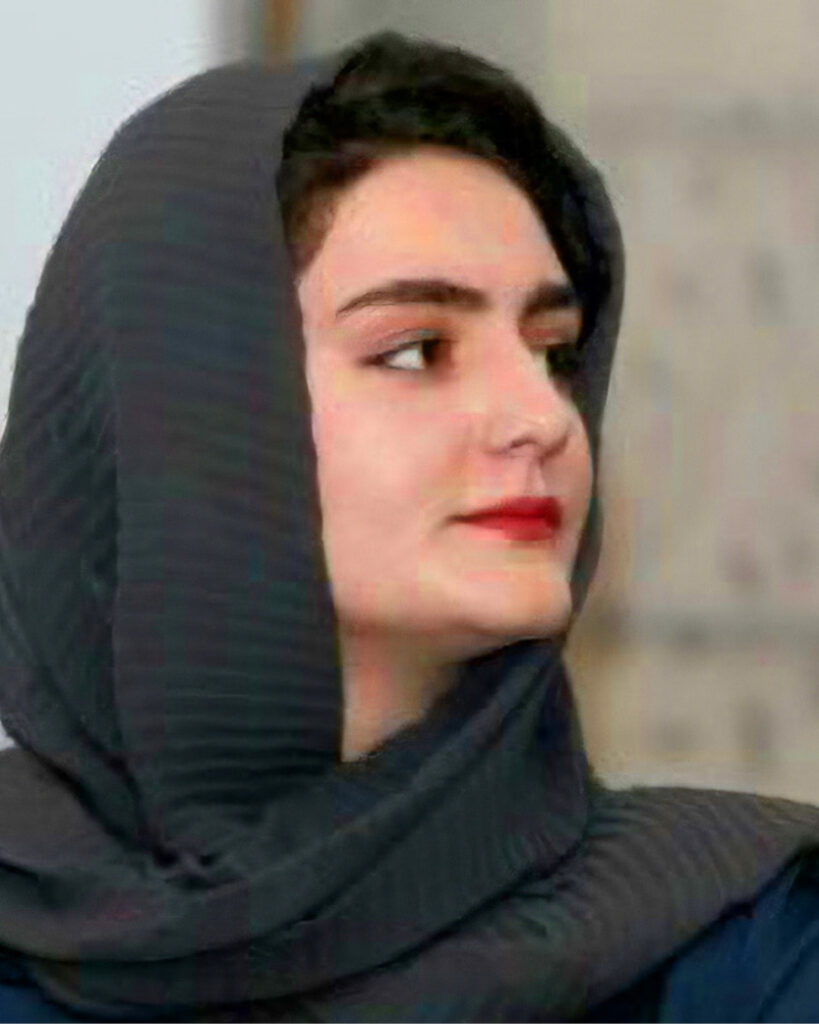
Maryam Rayed
IIE Rodman C. Rockefeller Centennial Fellow
Afghanistan Hub – Afghan Girls Online Education Project
Fulbright Foreign Student, 2022-2023
Maryam Rayed is a former Fulbright Foreign Scholar (2022-2023) from Afghanistan who earned her Master’s in Governance and Democracy from Georgetown University. Her work lies at the intersection of gender equality, inclusive policy development, and community resilience, with a focus on addressing systemic barriers faced by marginalized groups.
The Afghanistan Hub, in partnership with the Global Co-Lab Network, is an online educational initiative providing Afghan girls, deprived of formal education under the Taliban, with access to English language learning, mentorship, and scholarship opportunities, empowering them to pursue alternative educational pathways and contribute to their communities’ development, with a focus on achieving quality education and gender equality.
The objectives of this project are to:
- Promote inclusivity by reaching marginalized groups.
- Equip participants with essential skills, like English language proficiency and mentorship.
- Empower young women with the knowledge and confidence to pursue higher education, leadership opportunities, and societal roles.
Maryam is most looking forward to seeing Afghan girls overcome systemic barriers to education and gain the skills and confidence to pursue their dreams. Witnessing their transformation through mentorship and learning will be profoundly rewarding. Additionally, she looks forward to the cascading impact as these young women empower others in their communities, fostering a culture of equality and education that align with quality education and gender equality.